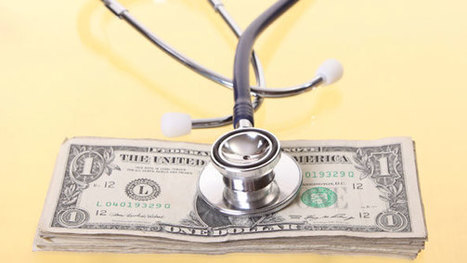I stand up for the rights of pharmaceutical companies to buy lunches or host dinners that are educational in nature. Academics, reporters, and politicians who fear this practice is driving up the costs of health care need to calm down and think differently.
As a pharmacist, I’ve gotten to know many pharmaceutical representatives over a sandwich. We talk about health care, drugs, side effects, and how to help patients. Those conversations are valuable to me, and I don’t mind the sandwich.
Here are 7 reasons to relax about the free pharma lunch:
1. Most health care providers work long hours and don’t have much availability in their day-to-day schedules. Many are on call nights, holidays, and weekends. In spite of this, they have to remain on the cutting edge of medical science, including knowledge about new drugs. Therefore, it’s simply efficient to combine learning opportunities with meals.
2. A health care provider’s time is extremely valuable. Every provider is needed at virtually all times. It’s all hands on deck every day to care for patients and save or improve lives. As such, every minute spent “working” is important and valuable. A relatively inexpensive meal in exchange for 15 to 20 minutes of time is a bargain.
3. The fact that prescribing frequency increases after engaging in lunch-and-learn sessions doesn’t mean that physicians wrote prescriptions out of guilt because they were given a free tuna fish sandwich, as they could afford their own lunch quite easily. The prescribing frequency could just as easily be tied to the education.
4. Providing a meal is a socially acceptable means for showing kindness and respect. If I want to thank you for your time, I might bake you a cake or cook you a casserole. You came over and fixed my computer? You’re getting a pizza. Sales representatives are responsible for educating prescribers in their territory through face-to-face meetings. A meal represents a tangible token of appreciation for their time.
5. Patients benefit when health care providers develop relationships with pharmaceutical companies. Many of these companies offer educational resources to patients and financial assistance to the uninsured or underinsured. But, getting these benefits to patients typically requires building relationships with providers. As a pharmacist, I can say I’m very grateful for some of the outstanding sales representatives I’ve gotten to know, because the services their companies offer are useful to my patients. Sometimes, these relationships have been built over a burger. Is that a crime?
6. Yes, it’s possible for incentives to go too far, but we’re talking about $18 to $20 meals, not lavish trips to the Swiss Alps.
7. Health care providers aren’t computers or machines. Learning takes time, and reminders about how a drug fits into the current recommended treatment regimen is appreciated. A drug representative gets to be an expert on a particular molecule, but we have to know all the molecules. So, spending a few moments with an expert on 1 specific drug helps reinforce best practices and treatment standards.
Via Pharma Guy



 Your new post is loading...
Your new post is loading...










It seems some physicians value the sandwich more than the education. Read, for example, “When Big Pharma Paid for Lunch & Learn Sessions, Academic Physicians Showed Up on Time - Now, Not So Much!”; http://sco.lt/6jFdVB